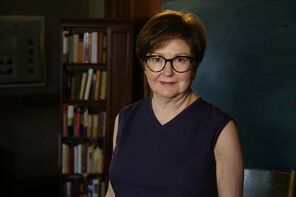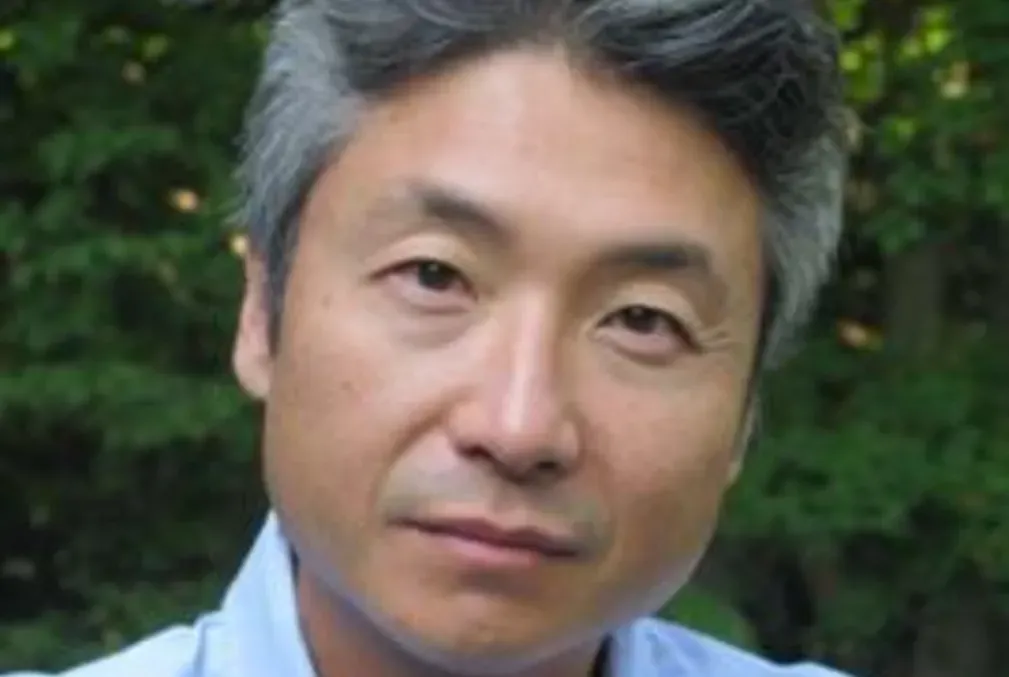Elizabeth Buchter Bernhardt-Kamil, longtime director of the Language Center, pioneering scholar, and beloved mentor, has died
Known to friends as “E.B.,” she brought a new form of language instruction to Stanford.
Elizabeth Buchter Bernhardt-Kamil, the John Roberts Hale Director of the Language Center and professor of German Studies in the School of Humanities and Sciences and a pioneering scholar of language learning, died Oct. 8. She was 70.
She joined Stanford in 1995 as the Language Center’s first director, and she held that position at the time of her death. In that role, she helped revolutionize language learning on campus and beyond while serving as a mentor to the many future scholars who were her students.
“Elizabeth was a pioneering figure in second-language acquisition and dedicated her career to improving the ways in which languages are taught and learned,” said Kathryn Starkey, the Edward Clark Crossett Professor of Humanistic Studies and professor of German Studies in the Division of Literatures, Cultures, and Languages in H&S. “She inspired not only through her groundbreaking research, but also through her care for those she worked with, her energy and dedication to the DLCL and the Language Center, and her sense of humor. Elizabeth's influence extended far beyond the classroom, and we miss her dearly.”
A generous mentor and an attentive reader
Prior to Bernhardt-Kamil’s arrival at Stanford, languages were typically taught in the context of literature and criticism. For example, students might have been taught to read Faust in the original German. Bernhardt-Kamil offered a different approach—studying language for its own sake—and she began implementing it as director of the Language Center.
“I served on the search committee that brought Elizabeth to Stanford to lead the initiative to strengthen second language acquisition,” said Russell Berman, the Walter A. Haas Professor of the Humanities and professor of comparative literature and German Studies in H&S. “She succeeded by building up the Stanford Language Center, forming a cohort of professional language instructors, and herself training generations of graduate students to become successful teachers. She was deeply committed to student learning as a non-negotiable goal in the research university.”
"We worked together for 18 years,” said Patricia de Castries, former assistant director of the Language Center. “She was a brilliant scholar, mentor, and wonderful administrator who always thought about others, never herself. She was a real lady and will be missed by everyone at Stanford.”
In 2014, Bernhardt-Kamil received the Distinguished Service to the Profession Award from the Association of Departments of Foreign Languages (a subsidiary of the Modern Language Association). At Stanford, she earned the Lloyd W. Dinkelspiel Award for Distinctive Contributions to Undergraduate Education in 1999 and the H&S Dean’s Award for Distinguished Teaching for 2014-15. Among her other legacies is an automated paperless testing regimen that she developed at the Language Center and then shared with other departments.
Her work endeared her to students (both graduates and undergraduates) and peers, who remember her as generous and gregarious, insightful and kind.
“I had the great good fortune to know Elizabeth Bernhardt for 25 years, first as my professor and mentor, then as a dear friend and colleague,” said Alys George, assistant professor of German Studies in H&S. “Elizabeth’s research area was reading, and, fittingly, she was a voracious, superb reader herself. Always passionate, always rigorous, always opinionated, she loved to debate the merits (or lack thereof) of literary texts—from Goethe to the latest book-prize winners—and she read the work of her students with the same attentiveness and critical eye. Her loss is immeasurable. But her model of uplift through mentoring was truly inspirational, and I hope that lives on through us, her students.”
“Elizabeth Bernhardt was a model of academic rigor and dedication to student excellence,” said Lisa Surwillo, associate professor of Iberian and Latin American Cultures in H&S. “Elizabeth was singularly central to the success of graduate students in every unit of the DLCL, and she took her role very seriously, giving every student professional attention and expecting the highest quality work from them. Elizabeth Bernhardt was a mentor that you find once in a generation, and I am lucky to have known her.”
“Oh, are you married to E.B.?”
Bernhardt-Kamil was born in Butler, Pennsylvania, and earned her doctorate in second languages and cultures education from the University of Minnesota in 1984. By then, she had discovered a passion for language, born of the realization that if she had trouble reading a foreign language, she wanted to know why.
This pursuit led to her book Reading Development in a Second Language: Theoretical, Research, and Classroom Perspectives (Praeger, 1991), which earned two prestigious prizes: the MLA’s Mildenberger Prize and the Edward Fry Award from the National Reading Conference for an outstanding contribution to literacy research.
Bernhardt-Kamil is survived by her husband, Michael Kamil, professor emeritus at the Stanford Graduate School of Education. (He jokes that whenever he met someone at Stanford, the first response was always, “Oh, are you married to E.B.?”) She is also survived by her brother, John Buchter.
At the end of her life, she found a way to contribute to the Stanford community and beyond. She died of cholangiocarcinoma and donated her tissue for research at the Stanford School of Medicine.
A celebration of life will be held Wed., Dec. 11 at 4 p.m. in the Cedar Room of the Stanford Faculty Club. RSVPs are requested. In lieu of flowers, memorial contributions may be made to Stanford Medicine. Checks should be made payable to Stanford University with the memo note “in memory of Dr. Elizabeth Bernhardt-Kamil for award GHJPO” and be mailed to Stanford University, P.O. Box 20466, Stanford, CA 94309-0466. Gifts may also be made online at elizabethbk.stanford.edu.




